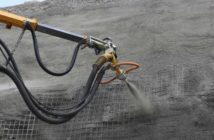Prevalent Scenario in Smart MaterialsMarket
Increasing technological advancements has resulted use of developed materials rather than conventional materials such as polymers, metal, and glass in various industries such as industrial, automotive, consumer electronics, and healthcare, among others. The property of smart materials to change one or more of its properties due to external stimulus is driving the usage of smart materials for various applications such as transducers, actuators & motors, structural materials among others. The use of smart materials requires high investments. Various governmental and non-governmental bodies are focusing on increasing awareness and fuel uptake of smart materials. For instance, Centexbel launched a new TIS action along with with Sirris to educate companies about the various applications of smart materials, which are available commercially. The increased demand for consumer electronics and wide range of applications for smart sensors by the end users act as a driving factor for growth of the smart materials market. The introduction of Internet of things (IoT) and the increased demand forconnected devices is driving market growth globally. Europe contributes a major market share, due to its growing automobile and electronics industries as well as energy sector. AsiaPacific market is expected to be the fastest growing market for smart materials, due to growing electronics market and improved standard of living in emerging economies such as China and India. Use of smart materials in the healthcare sectorhas led to innovation of medical devices. The key restraint for the smart materials lies in manufacturing costs for large quantities in different applicationsat effective yields.High costs in manufacturing and high investment in research and development investments hamper growth of the smart materials market.The market has high potential and large numbers of manufacturers are focusing on offering innovative products to enhance their market share.The new prospects for smart material products would have its applications in engineering sector for manufacturing control devices, self-detection, self-diagonistic and other devices.
Ask for detailed Sample of the Research Report @ https://www.coherentmarketinsights.com/insight/request-sample/281
*The Sample consists of Table of Content, Research framework of the actual report & research methodology adopted for it.
Smart materials have the ability to alter one or more properties when a controlled external stimuli such as stress, temperature, moisture, pH, electric and magnetic fields are applied on the material. Piezoelectric, magneto-rheostatic, electro-rheostatic, and other shape memory alloys are the most widely used smart materials. Properties such as viscosity, volume, and conductivity can be altered as per requirement in end applications. The smart material market is segmented on the basis of type which includes biomimetric materials, piezo-electric materials, thermally responsive materials and others. The piezoelectric materials segment dominated the smart materials market. Smart materials are adaptive to different environmental and operational conditions. Increased investments in R&D to innovate new smart materials has resulted in broadened applications in automotive, construction, healthcare, aerospace, chemical industries. Shape memory alloys has wide range of applications in manufacturing actuators and motors. Piezoelectric and electro-rheostatic materials are widely used in permeated households and automotive applications. Universities and key players are conducting research on smart materials to increase the elasticity of the materials to increase the application of smart materials to be used in health care industry for artificial muscles in prosthetics. Automobile industryis leaning towards replacing conventional materials with smart materials to manufacture highquality vehicles termed as ‘smart vehicle’.
Access Table of Content (TOC) of the report :https://www.coherentmarketinsights.com/ongoing-insight/toc/281
Fragmented Market
The global smart materials market is highly fragmented due to the participation of many established and emerging players in the smart materials market. Major players involved in the market include TDK Corporation (Japan), CTS Corporation (U.S.), Optotune AG (Switzerland), AMM Technologies (Italy), Lord Corporation (U.S.), Fort Wayne Metals (U.S.), AI Technology Inc. (U.S.), AVX Corporation (U.S.), Advanced Cerametrics,Inc., (U.S.), Wright Medical Group (U.S.).




